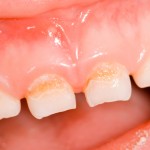
Lucy Hyam discusses a qualitative study that explored the impact of calorie labelling on menus for individuals with current or past experience of eating disorders.
[read the full story...]
Lucy Hyam discusses a qualitative study that explored the impact of calorie labelling on menus for individuals with current or past experience of eating disorders.
[read the full story...]
Gerard Clarke explores a recent study which looks into the interplay of metabolome and gut microbiome in individuals with major depressive disorder.
[read the full story...]
An international group of experts from the University of York CADA Implementation Science Summer School summarise a recent study on the prevalence of physical health conditions and health risk behaviours in people with severe mental illness in South Asia (Bangladesh, India and Pakistan).
[read the full story...]
Daisy Crick summarises a recent paper on the casual relationship between polyunsaturated fatty acids and depression.
[read the full story...]
Shuichi Suetani and Gaj Panagoda explore the World Federation of ADHD International Consensus Statement published in 2021, which contains “208 evidence-based conclusions about attention-deficit hyperactivity disorder.
[read the full story...]
Kathrin Cohen Kadosh appraises a recent systematic review relating to her own Wellcome Trust funded research on better gut microbiome and how increasing levels of probiotics and prebiotics may help prevent and treat anxiety in young people.
[read the full story...]
Georgie Parker reviews a qualitative analysis of Reddit comments relating to the use of MyFitnessPal and its impact on eating disorder behaviours.
[read the full story...]
This review of the effects of dietary acids and habits on dental erosion in the permanent dentition of 10- to 19-year-old adolescents included 52 observational studies. While the findings suggest some risk factors may contribute to dental erosion more high quality prospective studies are needed.
[read the full story...]
Francesca Bentivegna summarises a recent UK longitudinal study, which examines the relationship between fruit and vegetables consumption and wellbeing.
[read the full story...]
This Cochrane review asessing interventions with pregnant women, new mothers or other primary caregivers of infants in the first year of life for preventing early childhood caries included 17 RCTs .
[read the full story...]